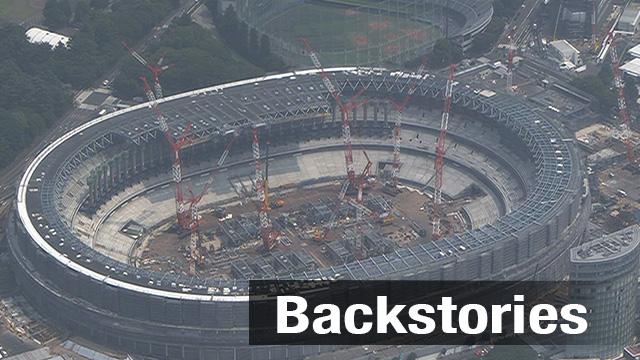Main stadium
Construction for the centerpiece Olympic venue has passed the halfway mark. The New National Stadium in central Tokyo is scheduled to be completed by the end of November 2019.
It will host both the Olympic and Paralympic opening and closing ceremonies, and track and field events.
NHK has been filming the site regularly from a helicopter since construction began.
The structure of the stadium's three-tiered stands has largely been completed. In all, there will be about 60,000 seats.
"I think the construction work has been carried out as planned," says Takeo Takahashi of the Japan Sport Council. "I hope the stadium will provide a comfortable environment for athletes, and promote Japan to people around the world."
Competition venues being prepared
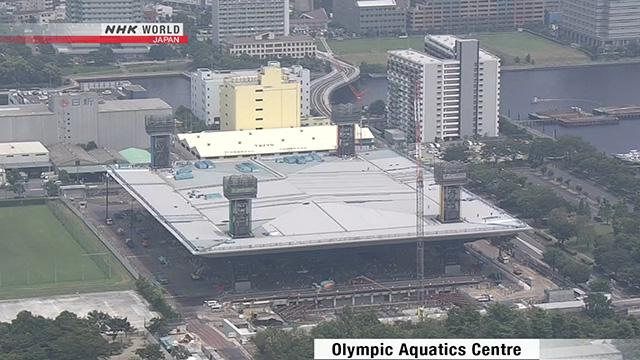
At the site of the Olympic Aquatic Center, where the swimming events will take place, construction of three pools is set to begin in August. This includes a 50 meter-long one that will hold the main swimming events.
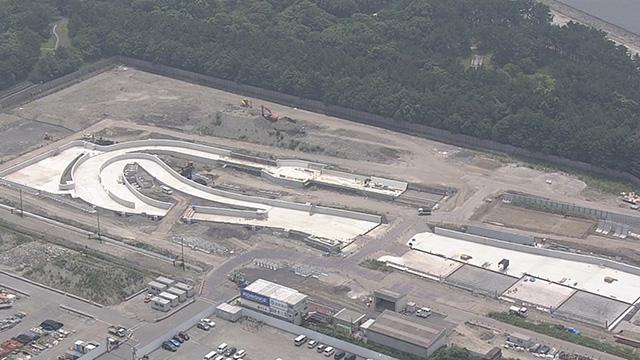
And construction is currently underway on an outdoor waterway course, the first of its kind in Japan, for the canoe slalom event. It is set to be completed in May 2019.
Organizers have also unveiled the marathon course. It will take runners on a tour of Tokyo landmarks.
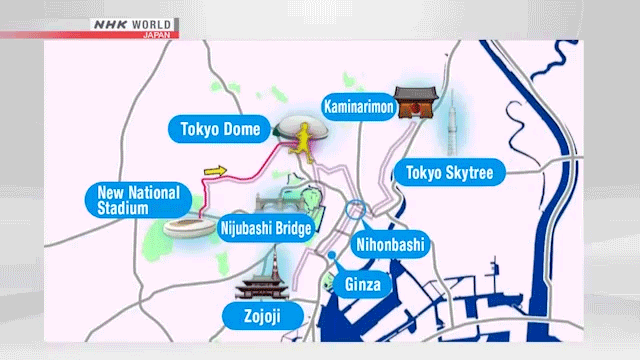
The course begins at the New National Stadium. The runners will head east to Nihonbashi. They will make their first turn in front of Kaminarimon, or the Thunder Gate, in Asakusa, one of the city's most famous tourist spots. The runners will then head south for the second turn at Tokyo Tower. They will then run along the outer garden of the Imperial Palace before finishing the race back at the New National Stadium.
Other venues are being prepared throughout Tokyo, including the athletes' village.
In total, there will be 42 venues throughout the country, including in northeastern Japan and Hokkaido.
Signs of Recovery
Some events will be highlighting the recovery from the 2011 tsunami disaster that struck northeastern Japan.
Miyagi Stadium outside of Sendai will be hosting some of the early-round soccer matches. The grass on the pitch will be provided by farmers from Miyagi Prefecture whose land was ruined by the tsunami.
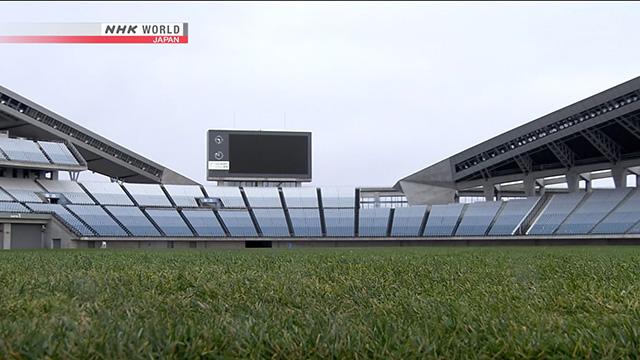
The tsunami engulfed wide swaths of land. Soil was left too salty to produce traditional cash crops like strawberries and rice. The farmers decided to try their hand at a new crop: lawn grass. "We hope the soccer players will be able to perform their best on the field we've prepared," says Seiichi Otsubo, the leader of the group.
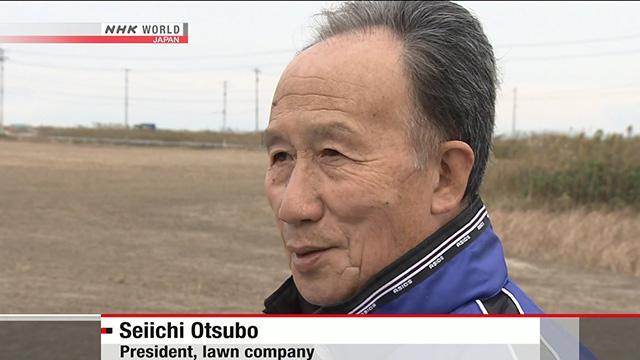
The region will also be hosting the first event of the Games, 2 days before the opening ceremony with a softball match in Fukushima, one of the areas hardest-hit by the disaster. Softball will be returning to the Olympics after more than a decade away.
For many, these events symbolize the progress made over 7 years of recovery.
Schedule unveiled
The Olympic Games will take place from July 24 to August 9, and the Paralympics from August 25 to September 6. Judo, gymnastics, and badminton competitions will take place during the first week. Athletics, wrestling, and the finals of team sports such as volleyball and soccer, will make up the second week. Organizers have also taken note of the recent heat wave sweeping Japan. Concerned about the health of the athletes and spectators, they have decided to push forward the start time of some outdoor events to beat the heat. The men's 50-kilometer race walk will start at 6 AM, the marathons at 7 AM, and the triathlons at 8 AM.
The schedule for some events has yet to be finalized. More details are expected by the end of the year.
Ticket prices
Organizers have announced prices for most events. The most expensive seats for the opening ceremony will be about $2,700. Cheaper options for both the opening and closing ceremonies start at about $107.
The most expensive ticket for an actual event is about $1,160. That event will likely be the final of the men's 100-meter sprint.
The cheapest tickets are around $22 for 8 sports, including soccer, rugby sevens, and softball.
There is also a special category of ticket: the Olympic-year-themed price of 2,020 Japanese yen, or about $18. This will be available for schools and other groups including children, the elderly, and people with disabilities.
Mascots unveiled
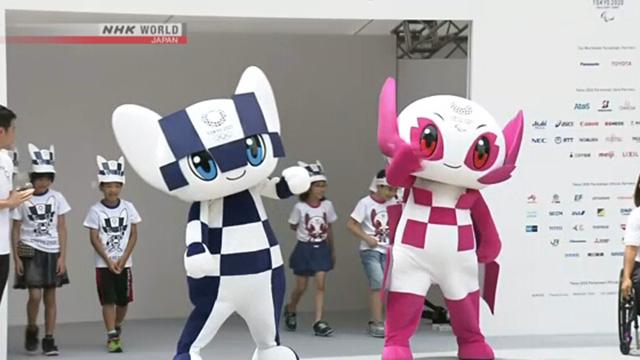
The names of mascots for the Games were unveiled on July 22nd.
Miraitowa will represent the Olympics. The name combines the Japanese words for future and eternity.
Paralympic mascot Someity is named after the Somei Yoshino, the famous Japanese cherry tree. Olympic organizers say it also echoes the English words "so mighty."
2 years to go
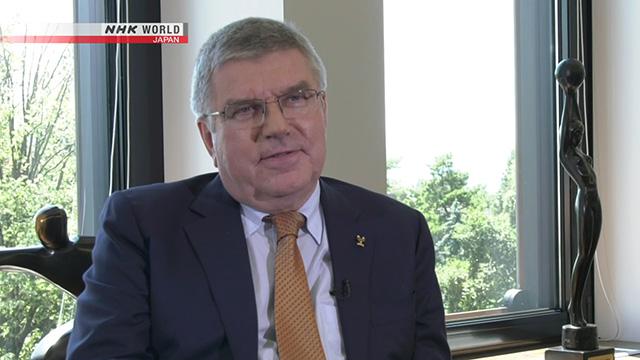
Thomas Bach, the President of the International Olympic Committee, told NHK that he is encouraged by the progress so far.
"The preparations are going very well and I think all the Japanese people can be very proud," he says. Bach says the Olympics often help to shine a light on important issues that are unknown to people outside of the country. He hopes this happens for northeastern Japan as it continues to recover from the 2011 disaster.
"There will also hopefully be a visit to Fukushima to show the solidarity with the people that are in the region and to show appreciation," he says. "And also to demonstrate once more that the Olympic Games, and sport in general, want to be helpful and want to assist in the reconstruction."
